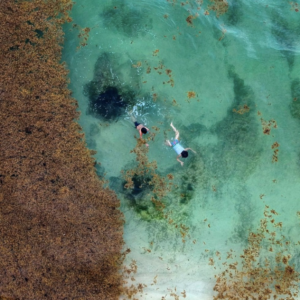© Good Travel Guide, April 2022
Author: Cecilia and Ken
Before you learn about the dark side of the voluntourism industry and learn how to choose a good volunteer program, we want to know that we have been in your shoes before.
Committing to the right volunteer program is a daunting task. It’s not just your vacation and money at stake, it’s your feelings too. You are a good person and you want to enhance the life of someone or something. So what do you do?
First, you searched “volunteer programs abroad.”
67,000,000 results in 0.71 seconds.
Whoa! Step on the brakes, Google! Now you might be thinking, “Do I even want to continue this digital expedition?

You just want to make the world a little bit of a better place while you’re abroad. How is that possible to know in the mix of free and paid volunteer programs with varying experiences, durations, and… oh! This one offers a certificate! That’d look impressive on my resume… maybe them?
I’ll have you know that some of those volunteer programs are not making the world a better place and they might even be causing harm!
If you read (or skip) to the end, you’ll learn how to separate the good from the bad voluntourism programs.
What is voluntourism?

Voluntourism is the compassionate undertaking of traveling to volunteer, it seems self-explanatory and conclusive, but its implications are a bit more complicated and important if you are considering doing it. The voluntourism industry has been boiling under criticism for years about its questionable contributions to the fragile communities, wildlife, and natural areas by revolving doors of paying voluntourists.
If you want to be a hero when you volunteer, you’re going to need a crash course on the dark side of the industry as well as a checklist of questions to sift out the bad volunteer programs from the good ones.
What is so bad about volunteer programs abroad?

Voluntourism is the practice of traveling to a place to do volunteer work which sounds self-explanatory but its implications are a bit more complicated. The voluntourism industry has been boiling under criticisms about its questionable contributions to fragile communities, wildlife, and natural areas by revolving doors of paying voluntourists.
There are a lot of organizations dedicated to arranging voluntourism experiences, many of which are set in developing countries, while most volunteers come from developed countries. Voluntourism could be used to contribute to the sustainable development of the destination, an opportunity to raise awareness on the global social problems and bring people of different cultures together and develop mutual understanding. Sadly, very often this is not the outcome of voluntourism projects.
Reason #1: The organizations that run volunteer programs aren’t local to the area they’re supposedly helping.
Many organizations are not local nor charitable, they decide what the problems are in a destination area, what the solution should be, and that this solution can be implemented by inexperienced foreigners that stay for a couple of weeks¹. They are often more interested in crafting gratifying experiences for the volunteers rather than developing sustainable projects that will generate long-term benefits for the local communities. Constructing a school building doesn’t fix the lacking education system of a country and building houses after a natural disaster can take away the opportunity from locals to be paid to do it. Voluntourism organizations should work in partnership with the local communities to determine their needs and help them become self-sufficient rather than making them reliant on foreign aid.
Reason #2: Good hearts, but poor skills that take away local jobs.
Volunteers are often well-intentioned people who wish to engage in social justice-oriented projects and have a transformative life experience. However, they often have no knowledge of house building, teaching or any of the other tasks they are assigned. Even worse, when projects involve children, many organizations don’t appropriately vet the volunteers exposing them to danger.
Reason #3: Incredibly expensive… for you!
These experiences can be rather expensive, so much so that the industry before the pandemic was worth over 2 billion dollars. Depending on the destinations and what is included in your trip, prices can go from as little as $200 for two weeks to as much as $2000 dollars². Most programs will include:
- Accommodations and meals
- Orientation and training
- Local transportation
- Insurance
- Program operation expenses and materials needed to complete program work, these should go towards supporting the communities and keep the organization going
The flight is not always included. Some organizations limit themselves to assist you with program placement and pre-departure help while some packages will include:
- Cultural immersion activities and adventure expeditions
- Language lessons³
Examples of Bad Voluntourism Programs
Sometimes teaching English to children living in slums, working in orphanages, building schools in rural areas, or building houses in places hit by natural disasters can be more harmful than beneficial for both parties involved.
The most outstanding example of bad voluntourism experiences is probably orphanages.
Many orphanages work with orphans, but also rely on encouraging parents to give up their children with the promise they will be fed and educated or by offering money. They do this because they need more children to attract volunteers and their money to then keep the profit to themselves. It has been proven that orphanages are not a good environment for children to grow up in, we should strive to keep children out instead of bringing them in. The employment of voluntourists can worsen the damage because children grow attached to people who leave after a few weeks which causes attachment disorders.
The Good Voluntourism Program Checklist
As you surf the web for volunteer programs abroad, keep these questions in mind when you’re deciding which to invest your time and money:
- Is the organizer of the program a non-profit organization native to the area they are helping?
- Do the duties performed by the volunteer require special training? If so, do you think it would be better if the locals received that training so that they don’t have to be dependent on paying travelers?
- Would you make a more positive impact if you donated money to a non-profit run by natives instead of traveling to volunteer?
What’s an example of a good volunteer program?
Let’s apply these to some good volunteer programs.
Beach Clean-ups in Thailand
Five years ago, I went backpacking across South Thailand. I knew I wanted to do some volunteer work for a few days. I searched for non-profit environmental organizations and found one called Trash Hero. I read their ‘about me’ which said:
“We create long-term programs that help communities to reduce and better manage existing waste, and strategies that will prevent future waste.”
This sounded perfect! I contacted them on Facebook and was impressed when they told me that I should bring my own biodegradable soap before visiting to protect the local streams that drain out into the ocean.
I asked about the cost and they said it was free. The program is run by the locals on the island.
If you reference the checklist, this program satisfies all requirements:
- The organization is run by the locals, not a foreign-owned organization.
- Travelers are only needed to do hard manual labor which doesn’t take away valuable training from the locals which could lead to jobs. They need you to only pick up and sort trash washed up on the beach which makes life easier for the locals
- It’s free, so you don’t need to think about whose pocket your money is really filling and if funding such an organization will make a tangible difference. Trash Hero’s beach clean-up program is 100% free.
Protecting Sea Turtles in Greece
This program you got to pay for, so right away you know to ponder the questions – “Where is my money going?”
Go to the “About me” section and you’ll find that Greece-based Archelon is actually a legit organization. They were founded by Greeks in the early 80’s and they rescue and rehabilitate Sea Turtles in close collaboration with “fishermen and local inhabitants in order to mitigate and reverse population reduction of sea turtles.”
Another green light is Archelon’s financial transparency. The sidebar of their website has a “financial management” tab with a breakdown of the organization’s income and expenses. It’s a safe bet that if you want to protect turtles, you know which country to add to your shortlist of destination candidates
Good travellers are informed.

It could be hard to find websites or apps that distinguish between good and bad volunteer programs. To make the best choice possible, travelers need to use the criteria we previously mentioned which dive into who the program is really benefiting financially, is the program taking away or preventing job training going to locals, and what’s the best way to use your money to make a difference? Sometimes, the best way to help is to fund the efforts of experienced locals.
How to Use the Voluntourism Checklist
We recommend getting a piece of paper and drawing four verticle columns titled with the name of the organization in the first column. At the top of the remaining three, title them with the checklist criteria that we mentioned earlier in the The Good Voluntourism Program Checklist section. Go online and fill in that first column while using this blog to circle the winning programs.
It’s time consuming. I know, but necessary to truly understand the value of the program you want to engage with.
Being a sustainable traveler is about caring enough to take the extra pre-planning steps which include information digging into whether the volunteer program benefits the area it claims to be helping, whether the job training to complete tasks should go to needy locals instead of paying tourists, and whether you could make a more positive impact by using your money to donate to a non-profit instead of paying for a voluntourism experience. Your efforts will be rewarded with gratitude and a sense of pride knowing that you are supporting programs that make the world a cleaner, happier, and more prosperous place.
We invite you to bookmark this blog so you have our checklist handy.
Sources:
- https://rethinkourworld.com/unethical-volunteering-the-growing-epidemic-of-voluntourism/
- https://www.goabroad.com/articles/volunteer-abroad/how-much-does-it-cost-to-volunteer-abroad
- https://www.gooverseas.com/blog/how-much-does-cost-volunteer-abroad
- https://www.theguardian.com/global-development/2021/jun/10/voluntourism-new-book-explores-how-volunteer-trips-harm-rather-than-help




